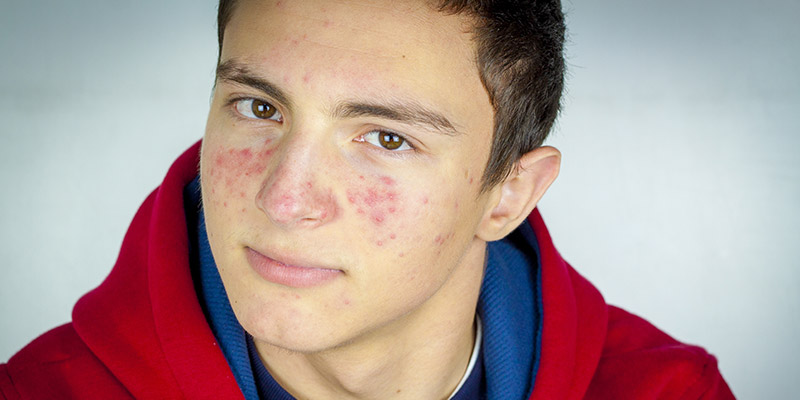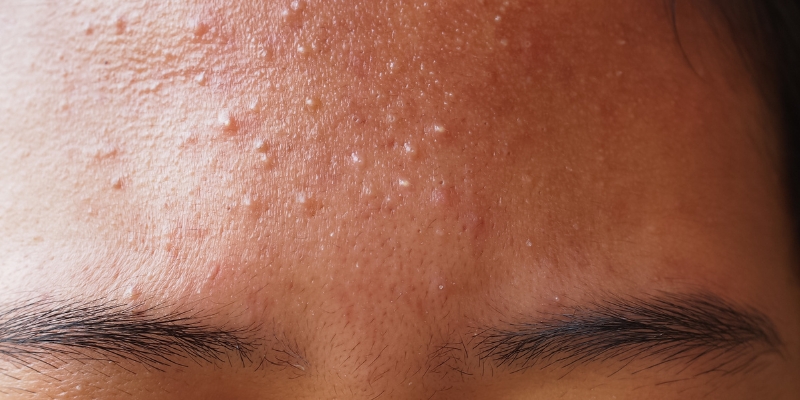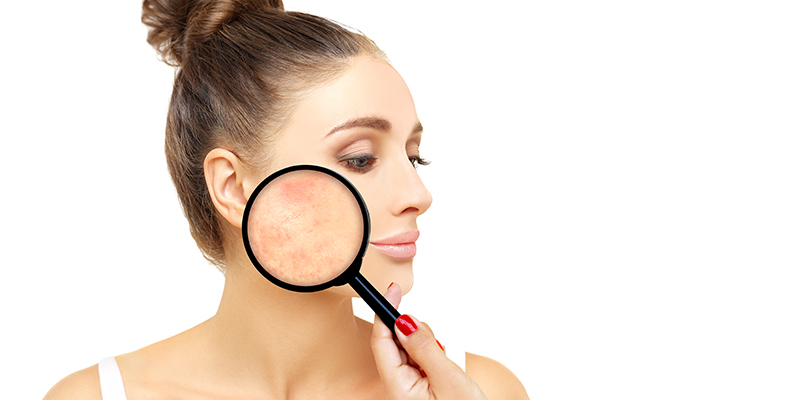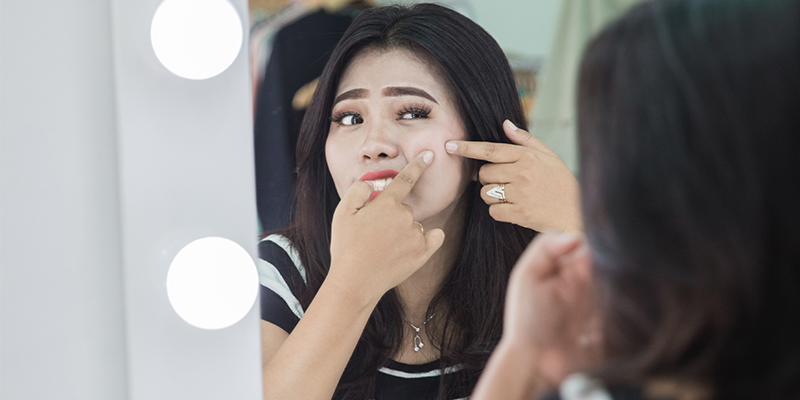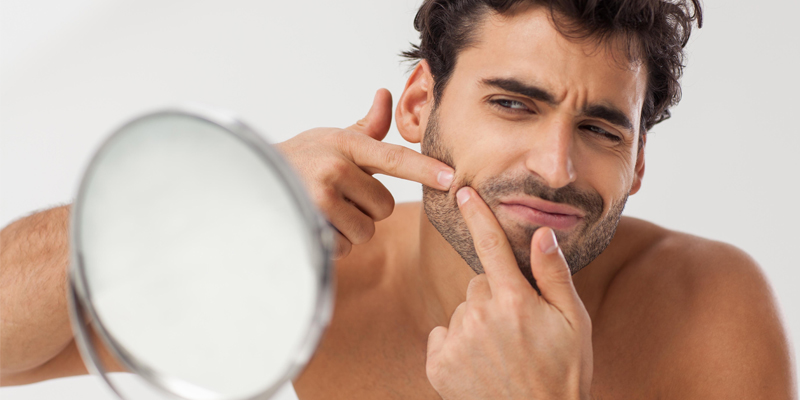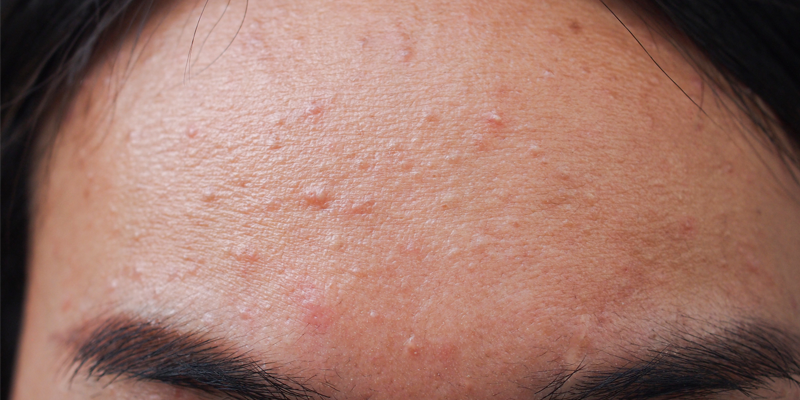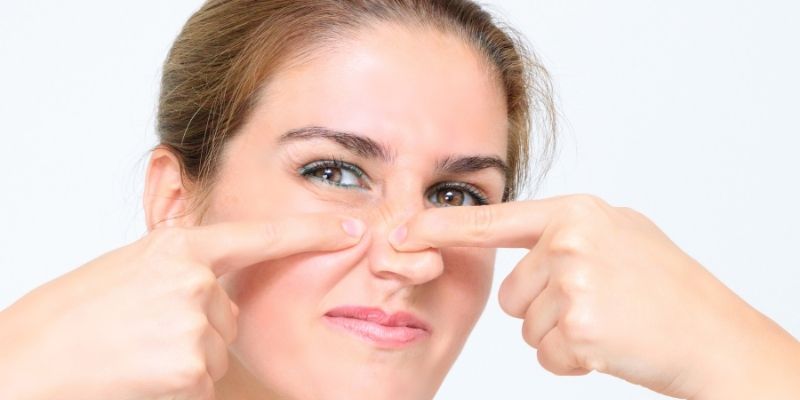Blood Filled Pimple – Causes, Treatment And Prevention Tips
Pimples are one of the most common skin complaints among both men and women. They usually appear during puberty but can affect any age group. In the event you squeeze or tamper with acne, the blood vessels beneath it may rupture, filling the pimple with blood. Depending upon the severity, acne can become a significant aesthetic concern as it can lead to disfigurement due to scarring. Know more about the causes, treatments and preventive tips associated with blood-filled pimples.
What Is A Blood-Filled Pimple?
A blood-filled pimple is the same as regular acne. However, popping, picking or scratching it can cause bleeding.
Causes Of Blood-Filled Pimples
A pimple usually occurs due to the build-up of dead skin, excess sebum or natural oil, and bacteria in the pores of our skin. The primary cause of a blood-filled pimple is popping, scratching or picking the existing breakout. Usually, when you do so, white or yellow pus discharge oozes from the acne due to inflammation. However, sometimes, the pressure applied on the pimple while popping or picking causes the blood vessels underneath to rupture, which results in blood filling the pimple.
Must Read: What Is Acne Vulgaris And How Is It Caused?
Treatment For Blood-Filled Pimples
In most cases, blood-filled pimples will heal on their own, as long as they are left untouched. Squeezing or popping the pimples before they heal can spread the inflammation to the surrounding tissue and lead to scarring. Seek the treatment for acne at the earliest to prevent the sequelae like scarring and pigmentary changes. Your dermatologist may prescribe some of the modalities listed below:
- Prescription medications for topical application, e.g. topical retinoids, benzoyl peroxide and clindamycin.
- Your dermatologist may prescribe oral medications, including antibiotics and oral retinoids.
- Chemical peels
- Hormonal therapy if there is an underlying condition like PCOS.
- Drainage of pus/blood from large cyst like acne.
Always consult an experienced dermatologist who can examine your skin thoroughly and then prescribe the right medication and treatment.
Must Read: How Do Antibiotics Work For Acne?
How To Prevent Blood-Filled Pimples?
Here are some simple tips to prevent blood-filled pimples:
- First and foremost, one should never pick, pop, or squeeze these pimples as this will aggravate the inflammation and also result in blood-filled pimples and scarring. Also, avoid touching your face unnecessarily.
- Always wash your face at least twice a day with warm water and a mild cleanser. This will help you get rid of all the bacteria, dirt, dead skin cells and excess oil.
- Make sure that you use gentle products on your skin as scrubbing aggressively or using harsh products can irritate the already sensitive and inflamed skin.
- Stick to the use of non-comedogenic and fragrance-free makeup products. Avoid using expired products.
Must Watch
Do Blood-Filled Pimples Cause Scarring?
Yes, the squeezing and popping of pimples can result in scars. Risk of scarring is more with persistent untreated acne or severe acne. Pimples take time to fade on their own. Avoiding contact with them and following a skincare routine to disinfect and clean the affected area will prevent the formation of blood-filled pimples. If you want to get rid of your scars, then it is advisable to visit a dermatologist who can prescribe the right scar removal treatment such as chemical peels, lasers and micro-needling radiofrequency.
If you have blood-filled pimples regularly, consult a leading dermatologist at Oliva Skin & Hair Clinic at the earliest and prevent scars. Early acne treatment can give you the best results and help you enjoy a blemish-free complexion soon!






